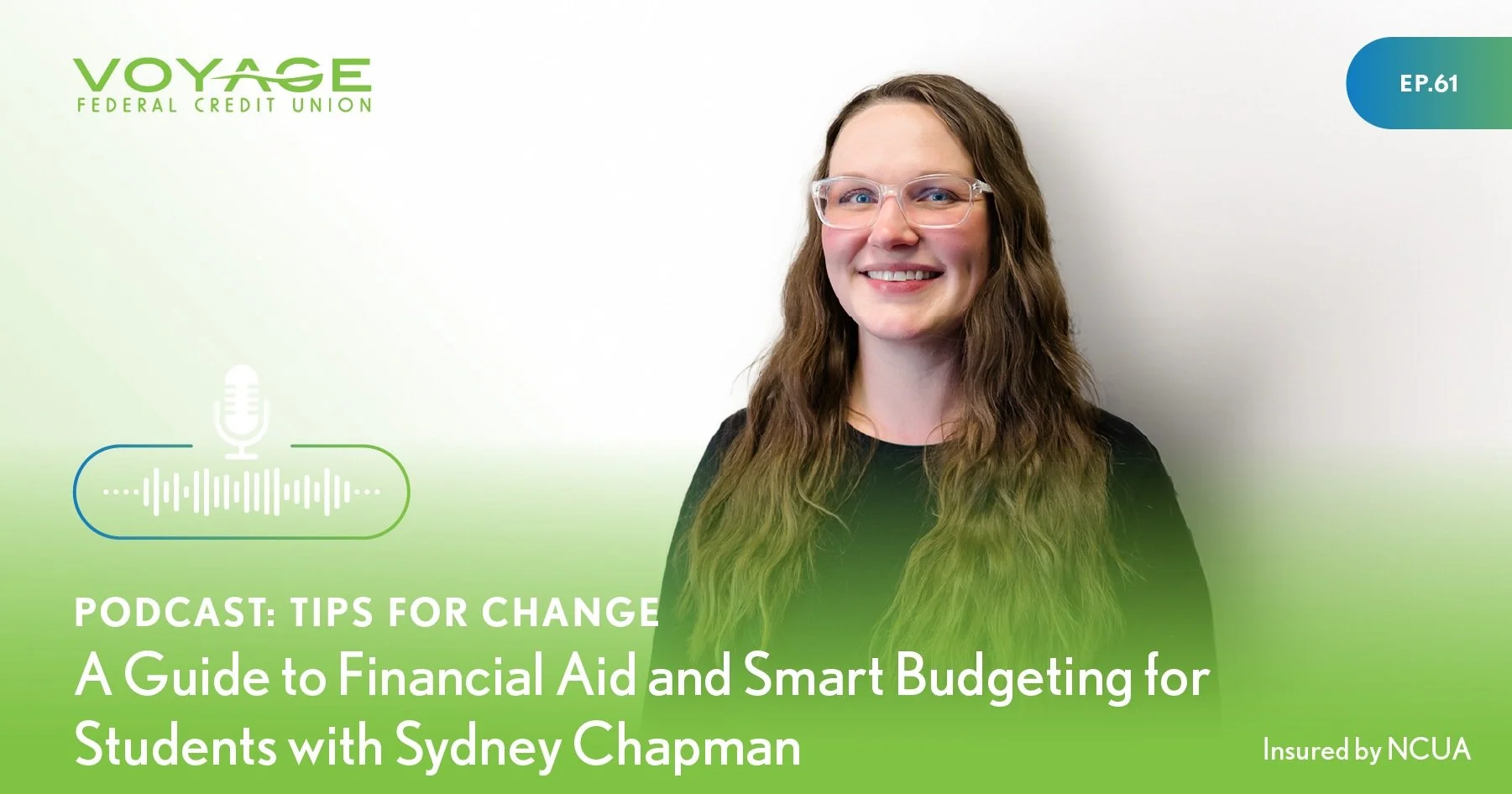A Guide to Financial Aid and Smart Budgeting for Students with Sydney Chapman
A Guide to Financial Aid and Smart Budgeting for Students with Sydney Chapman
In this episode of Tips for Change, we’re joined by Sydney Chapman, Assistant Director of Financial Aid at South Dakota State University, to talk through some of the biggest financial questions facing today’s college students. From navigating scholarships to choosing the right meal plan, this conversation is packed with practical advice for students—and parents—looking to make smarter money choices..
Scholarships: A Starting Point for Student Aid
The conversation begins with a common challenge: how to afford college. Scholarships, Sydney explains, are one of the most overlooked resources available. Applying early, broadly, and consistently can make a significant impact—some students earn $1,000 scholarships with just a few hours of effort. Unlike loans, scholarships don’t require repayment, making them a key component in reducing debt.
Voyage also offers its own Scholarship Program to support students with educational costs. Checking eligibility requirements and deadlines is a smart first step.
Budgeting Beyond Tuition
While tuition and housing get the most attention, everyday expenses can quietly eat away at a budget. Small costs can add up fast. Sydney points to easy ways to scale back—like reducing those daily habits to weekly treats, or eliminating unused subscriptions.
Managing those smaller costs starts with awareness. For more practical strategies, Voyage's budgeting tips offer helpful guidance for tracking spending and setting realistic limits.
Smart Choices for Housing
One of the biggest decisions students face is where to live. While premium dorms and campus housing options can be appealing, Sydney recommends weighing the financial reality. If a student can’t comfortably afford their current plan, it may be time to reassess.
Stretching Your Dollars with Campus Perks
Another area that often goes unnoticed? The many free or discounted resources available on campus. Students have access to wellness centers, gyms, mental health support, and campus events—often at no extra cost. These benefits promote well-being and create opportunities for connection without straining a tight budget.
Budgeting Tools for Everyday Life
Building a budget doesn’t mean cutting out fun—it means knowing where your money is going. Sydney encourages students to start simple: track income, list out expenses, and adjust as needed. Categories should include everything from tuition and rent to groceries, supplies, and snacks.
Technology makes budgeting easier than ever. Apps that match your habits and lifestyle can simplify the process. With mobile banking, students can check balances, track purchases, and monitor spending from their phone, anytime and anywhere.
Credit Cards: Helpful or Harmful?
Credit cards can help students build credit—but only if used responsibly. Charging more than you can repay can lead to interest charges and long-term damage to your credit score. Sydney recommends taking a cautious approach: only spend what you can pay off each month. If you’re unsure about how to use a credit card wisely, it’s okay to wait.
Advice for Students—and Their Parents
Sydney’s guidance is clear: the habits you form in college will shape your financial future. Saving money while living at home, learning to manage monthly expenses, and understanding the basics of credit can all lay a strong foundation. Parents also play a role—but Sydney encourages them to support, not control.
Take the First Step
Filling out the FAFSA each year and understanding your eligibility can open the door to significant funding opportunities. Visit Federal Student Aid to begin the process.
College is a big financial investment, but you dont have to navigate it alone. Listen to the full episode here:
Episode Mentions
About Sydney Chapman
Sydney Chapman is the Assistant Director of Financial Aid at South Dakota State University, where she’s worked for over a decade helping students understand and access funding. She oversees system operations, aid processing, and compliance tracking—playing a critical behind-the-scenes role in ensuring financial aid runs smoothly.
She holds 15 professional credentials through the National Association of Financial Aid Administrators (NASFAA) and has served on numerous state and regional committees. Outside of her career, Sydney enjoys spending time with her husband, Ben, and their daughters, Hattie and Gemma.

